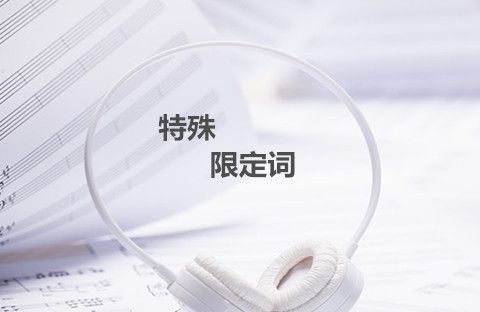|
上期节目回顾:[节目]中考英语语法考点05 连词 上期节目答案:1-5 DAABC 6-10 ADAAA 本期节目内容: I. 要点 1、 一般现在时 (1) 表示经常发生的动作或现在存在的状态,常与sometimes, always, often, every day等时间状语连用。如:Sometimes, we go swimming after school. (2) 表示客观真理、科学事实等。如:The earth goes round the sun. 2、 现在进行时 (1) 表示说话时或现阶段正在进行的动作,常与now, at present等时间状语连用。如:
What are you doing now? (2) 和always, continually等连用,表一种经常反复的动作,常含有某种情感。如:
He is always doing good deeds. 3、 现在完成时 主要表示动作发生在过去,对现在仍有影响,或动作一直延续到现在,或可能还要继续下去,常与just, already, so far, once, never 等词连用。如:Have you ever been to Beijing? 4、一般将来时
表示将来某一时间要发生的动作或存在的状态,常与tomorrow, next year等连用。如:
I'll meet you at the school gate tomorrow morning.
We're going to see a film next Monday. 5、一般过去时
表示在过去某一时间或某一阶段内发生的动作或存在的状态,常与yesterday, last year, in 1998, a moment ago等词连用。如:It happened many years ago. 6、过去进行时
表示过去某一时刻或某一时期正在发生的动作。如:
What were you doing this time yesterday? 7、 过去完成时
表示在过去某一时间或动作之前已经发生或完成了的动作。如:
The train had already left before we arrived. 8、一般过去将来时
表示说话人从过去的角度来看将来发生的动作。如:
He said he would come, but he didn't. 9、被动语态 被动语态的时态,以give为例。 时/式 一般 进行 完成 现在am
is given
are am
is being
arehas
been given
have 过去was
given
werewas
being given
werehad been given 将来shall
be given
will shall
have been given
will 过去将来should
be given
would should
have been given
would II.例题 例1 I learned that her father ____ in 1950.
A had died B died C dead D is dead 解析:该题正确答案为B。从句中的谓语动词动作虽然发生在主句谓语动词的动作之前,但因从句中有明确的过去时间状语in 1950, 所以不用过去完成时态,而用一般过去时态。 例2 The five-year-old girl ____ by her parents.
A is looked B has looked for
C is being looked for D has been looked 解析:该题正确答案为C。在带有介词的动词短语用于被动语态句中,介词不能省,否则就变成了不及物动词短语,而不能用于被动语态的句子中。 随堂练习: ( ) 1 -He came early this morning, didn't he?
-Yes, he did. He often___ to school early.
A. come B. comes C. came D. has come ( ) 2 Ann ____ her hair every week.
A. is going to wash B. wash C. washes D. is washing ( ) 3 They usually_____TV in the evening.
A. watch B. will watch C. are watching D. watches ( ) 4 The sun ___ in the east and___ in the west.
A. raises; set B. rise; sets C. rises; sets D. rises; set ( ) 5 Miss Gao___ English on the radio every morning.
A. had studied B. studies C. study D. studied ( ) 6 Our teacher will return by the time school
A. will begin B. began C. is beginning D. begins ( ) 7 -I usually have milk and bread for breakfast. What about you, Jim?
-So do I, but my sister ___.
A. hasn't B. doesn't C. didn't D. won't ( ) 8 -That ten pound note belongs to me.
A. Yes, it belongs B. No, it doesn't C. Yes, it is D. No, it isn't ( ) 9 She will go if it ___ tomorrow.
A. isn't rain B. don't rain C. doesn't rain D. didn't rain ( ) 10 -_____ they often ___ these old men?
-Yes, they___.
A. Do; help; are B.Are; helping; are
C. Do; help; do D. Are; helped; are | 







